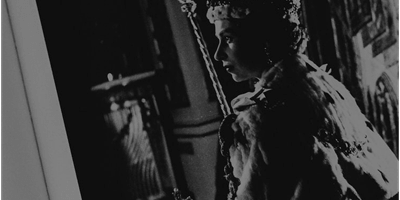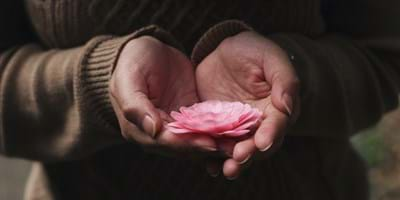“And He looked up and saw the rich putting their gifts into the treasury, and He saw also a certain poor widow putting in two mites. So He said, ‘Truly I say to you that this poor widow has put in more than all; for all these out of their abundance have put in offerings for God, but she out of her poverty put in all the livelihood that she had’” (Luke 21:1-4).
I had read it in The Illustrated Family Bible storybook to the little heads all around the table at breakfast, and we had discussed what it meant that her two coins were worth less than a penny. I had read it in The Beginner’s Bible to the two youngest boys on the couch, while the older kids were off reading their Picture Bibles, and we had noted that it was the same story from breakfast. And after they are all tucked in snugly with a kiss and a prayer, I sit down to my own Bible reading and there it is again.
What is the lesson? What is the message the Lord is repeatedly putting in front of me today? What is it in this story that I should take into my life and believe and live?
Well, for one, she was a woman. That means He values the contribution of women. He values my contribution to His kingdom. When the counting is done, I count. His eye is upon me. He knows my devotion and my desires, and He tests my reality and my follow through, and He evaluates my service. I might not be famous, but I am important to Him.
But also, she was poor. In comparative measures, she wasn’t even average, and she certainly wasn’t “the Joneses”. She only had a little. But she had a little. And I, likewise, find that I am one of the teeming masses of humanity, quite common and fairly average, and very ordinary, and, in a spiritual sense, I am poor. The flesh hampers me, and I am dependent on the power of the Spirit and God’s grace for any and every endeavour. In myself I find no good thing. But Jesus says, “Blessed are the poor in spirit” (Matthew 5:3), and tells me that I can offer myself still, and God is looking for that living sacrifice. I can give what I have, what I am.
And here I see that “doing” and “being” are two different but interconnected things. This woman and the rich were “doing” the same things: dropping their money into the box. But they were different kinds of people, and who they were affected what they did, and the Lord’s evaluation of it.
For her part, she was genuine. This is what He valued. This is the outstanding characteristic. This widow was not pretending anything, and this meant the world to Him. When she put it all in, it truly was all. When she came as she was, poor and lonely and devoted, she was offering herself in her truest form. And when she slipped her offering over to the Lord without a fanfare, she was sure that her value came from his ever-watching eye (irrespective of whether He was physically present), rather than the impression it made on those around her who might be listening for the jangle effect.
So, I see it clearly here. He is trying to tell me that a woman like me can give out of my poverty with genuineness and humility, and although it might not amount to much when the worldly tally is done, and it might seem as futile as giving into the treasury of a temple that is soon to be a heap of rubble, it will count with Him.
And He will transform it into something for His glory. Didn’t He do that for her? A story. He turned her sacrifice into a story that speaks to me thousands of years later. Is that what she was thinking her two small coins would accomplish? An encouragement to strengthen the resolve of her “sisters” to give as she gave. Did she know her money could be used to that end? An eternal weight of glory. Two small coins speaking to many generations of Christians about sincerity and devotion.
And He whispers through the narrative of a poor, but true, follower of His: give your little in sincerity and truth. That’s how a life adds up. Little . . . but genuine. Little . . . but sacrificed. Little . . . but of great value to God. Though unnamed and unnoticed by the masses, she was very special to Him, and at an hour of great duress for Him. When this event takes place, the Lord is so close to doing as she does. Without riches, without applause, without human approval, without understanding from the thronging crowds or even from His own followers, He puts one foot in front of the other and continues on to Calvary, giving his everything for her. And for us.
How can we help but do likewise for Him?
Photo credit: Annie Spratt
































